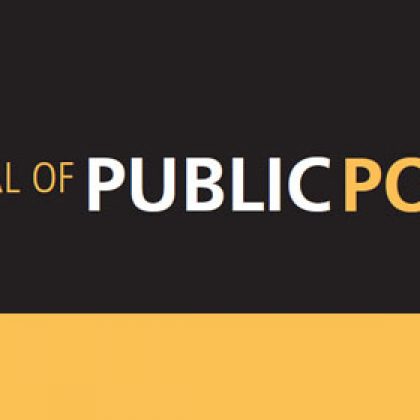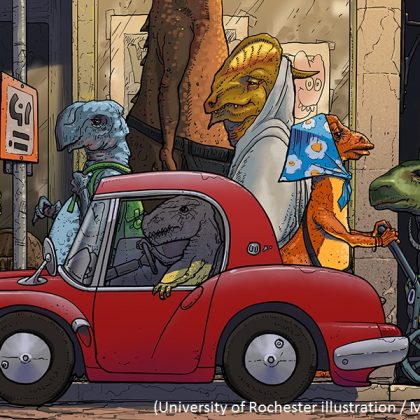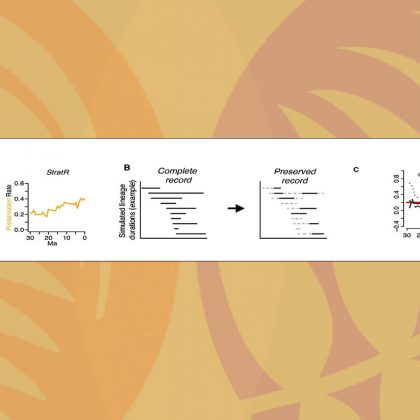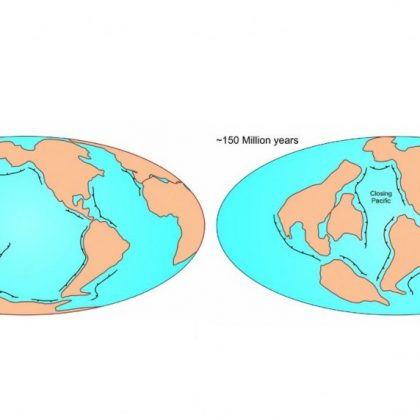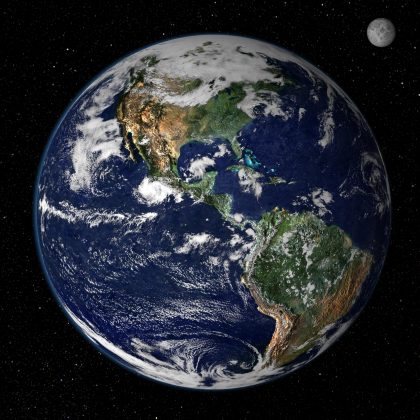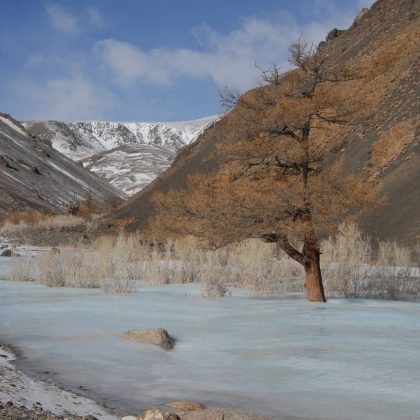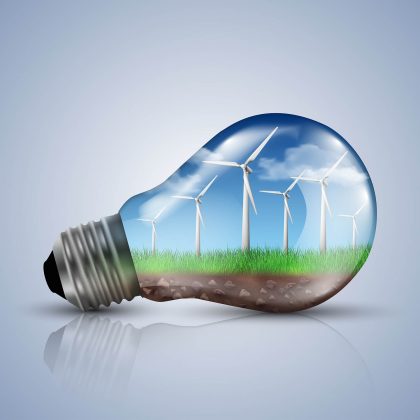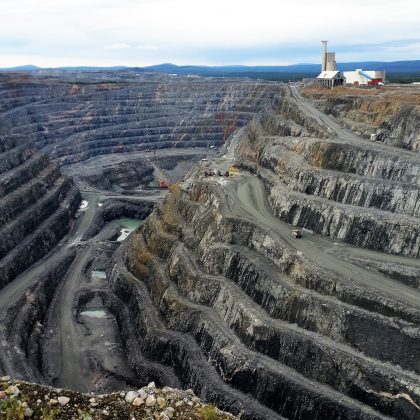Adam Frank and more · 18 April 2018
Imagine if, many millions of years ago, dinosaurs drove cars through cities of mile-high buildings. A preposterous idea, right? Over the course of tens of millions of years, however, all of the direct evidence of a civilization—its artifacts and remains—gets ground to dust. How do we really know, then, that there weren’t previous industrial civilizations on Earth that rose and fell long before human beings appeared?
It’s a compelling thought experiment, and one that Adam Frank, a professor of physics and astronomy at the University of Rochester, and Gavin Schmidt, the director of the NASA Goddard Institute for Space Studies, take up in a paper published in the International Journal of Astrobiology.











